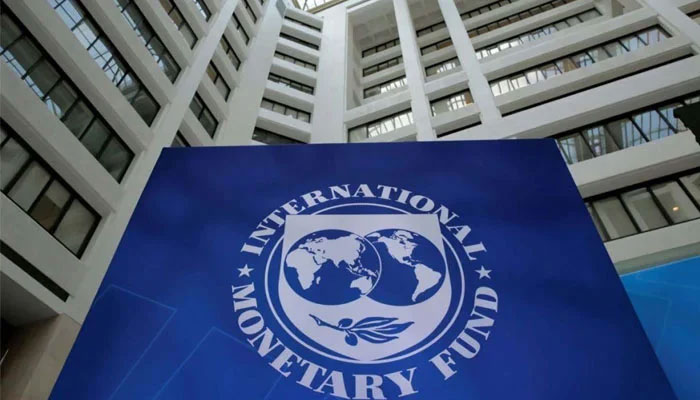Fiscal challenges
LAHORE: Pakistan is in such a vulnerable state that when our leaders meet global luminaries, they discuss different matters, including the economy. After the meeting, we only issue a statement saying that such and such country has promised to invest billions in our country.
Investors would come after we satisfy the IMF about the viability of our economy. The $100 billion that we boast about has been promised upon fulfilling conditions, and then they would announce their intentions.
We take memorandums of understanding as solid promises, whereas MoUs are just a piece of paper unless practical steps from the other side are taken. It was in this context that there were some encouraging words about Pakistan’s economic direction by the leader of the IMF staff who is in Pakistan to review the progress made by the country after their last visit. But it was taken as an indication that we will get the last tranche of our current agreement with the IMF.
The Ministry of Finance issued a statement saying Pakistan has fulfilled all the IMF conditions and will get the money.
The IMF delegation rightly took it as an insult because they have come all the way to Pakistan to review our performance. If everything was okay, then what was the purpose of taking all this pain? We promised them to take some measures before this last review. It is true that the caretaker government took almost all measures promised to the IMF according to the timeline, but the issue of privatization is still in limbo. It is possible that the IMF may give a waiver on this issue and give us more time.
But they have to scrutinize our revenue generation measures. We have been updated on revenue collection, but during the last two months, we failed to achieve the targets for January and February, though we are on target for the first eight months of this fiscal year.
The IMF will carefully watch revenue generation in March to ensure that the slippage is not of a permanent nature. In that case, they would ask the government to levy more taxes to meet the target.
We hope that the FBR will double its efforts. Recent mass-scale reshuffling of FBR officers is perhaps meant to ensure strict compliance with revenue generation.
Pakistani officials should make careful assumptions. We are in trouble, and the IMF means business. They have been advising us to take numerous measures like increasing the tax-to-GDP ratio, privatizing loss-making public entities, and eliminating subsidies. Pakistan’s government, in the last two years, has agreed to almost all conditions of the Bretton Woods institution that has saved Pakistan from default. But the economic situation is still grim, and we badly need a long-term IMF program to wriggle out of this situation.
The government must take the bold decision of increasing taxes on the rich in line with the principle of each person or entity paying taxes according to its capacity. Under this principle, taxes for the salary class drawing up to Rs100,000 per month should be reduced, and those for firms and individuals enjoying higher incomes should be increased. The current finance minister has also resolved to bring real estate, agriculture, and traders under a proper tax net.
-
 Expert Reveals What Makes Investigations Hard In Search Of Savannah Guthrie Mother Nancy: 'Silent Witness'
Expert Reveals What Makes Investigations Hard In Search Of Savannah Guthrie Mother Nancy: 'Silent Witness' -
 'SNL's Strongly Reacts To BAFTA's Racial Slur With Tourette’s Sketch
'SNL's Strongly Reacts To BAFTA's Racial Slur With Tourette’s Sketch -
 Austin Shooting Leaves Multiple Dead, Dozens Injured
Austin Shooting Leaves Multiple Dead, Dozens Injured -
 Meghan Markle Friends Break Silence As Duchess Plan To Return To UK
Meghan Markle Friends Break Silence As Duchess Plan To Return To UK -
 Dua Lipa Stuns Everyone On And Off Stage At 2026 BRIT Awards
Dua Lipa Stuns Everyone On And Off Stage At 2026 BRIT Awards -
 2026’s Most Visited Websites Revealed: ChatGPT Overtakes Major Platforms
2026’s Most Visited Websites Revealed: ChatGPT Overtakes Major Platforms -
 Worst Cricket Moments That Shocked The Game
Worst Cricket Moments That Shocked The Game -
 Prince Harry, Meghan Markle Reach A Crossroads: ‘You Could Lose Everything’
Prince Harry, Meghan Markle Reach A Crossroads: ‘You Could Lose Everything’ -
 F1 Title Race: Who Will Win 2026 Drivers’ And Constructors’ Championships?
F1 Title Race: Who Will Win 2026 Drivers’ And Constructors’ Championships? -
 New Observatory Sends 800,000 Asteroid Alerts In One Night
New Observatory Sends 800,000 Asteroid Alerts In One Night -
 Cher’s Son Elijah Blue Allman Apprehended On Two Counts Of Assault At Elite Prep School
Cher’s Son Elijah Blue Allman Apprehended On Two Counts Of Assault At Elite Prep School -
 Beatrice, Eugenie Now Face Andrew, Sarah's ‘nightmares’: 'They're Hugely Conflicted'
Beatrice, Eugenie Now Face Andrew, Sarah's ‘nightmares’: 'They're Hugely Conflicted' -
 X Debuts Topic Filtering To Help Users Shape Their ‘For You’ Recommendations
X Debuts Topic Filtering To Help Users Shape Their ‘For You’ Recommendations -
 Scientists Built World's First Computer That Learns Like Human Brain
Scientists Built World's First Computer That Learns Like Human Brain -
 Robert Carradine’s Daughter Makes Bombshell Confession As Actor's Death Cause Confirmed
Robert Carradine’s Daughter Makes Bombshell Confession As Actor's Death Cause Confirmed -
 Beatrice, Eugenie Put On Blast: ‘Only Nitwits Wouldn’t See An Association With A Pedophile As Toxic’
Beatrice, Eugenie Put On Blast: ‘Only Nitwits Wouldn’t See An Association With A Pedophile As Toxic’




